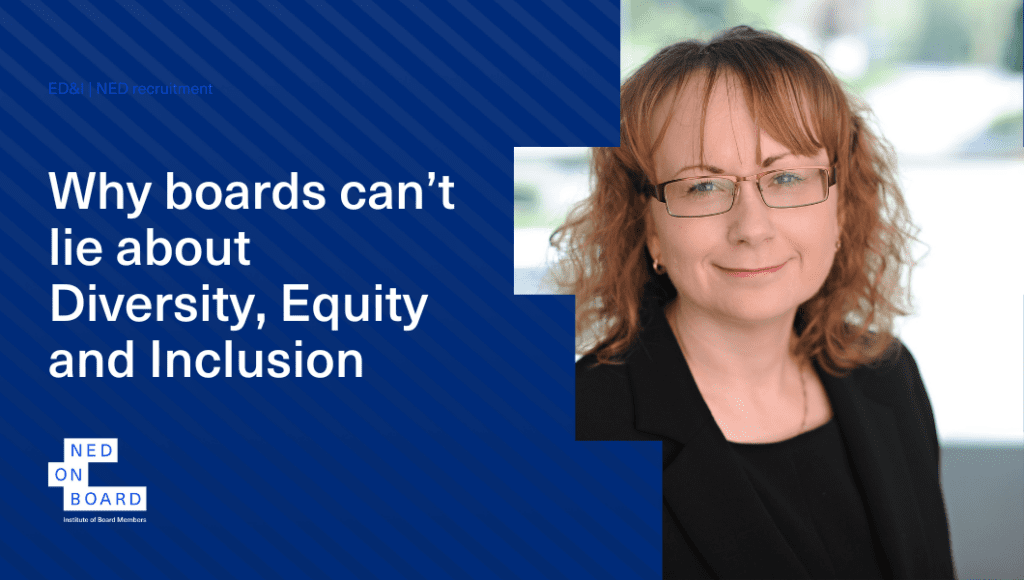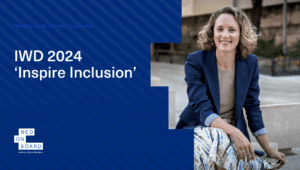It is not enough for boards to consider the impact of Diversity, Equity and Inclusion for the organisation and workforce; they must consider how the board itself embodies this. If the board is not leading from the front on issues and modelling behaviours, attitudes and a positive culture it makes a mockery of any policies and initiatives implemented, along with external statements made by the organisation.
Board members must be allies and advocates for the DEI strategy they endorse and implement within the organisation. Failure to do so will see them undermine the work done by the executive leadership, see higher attrition and a failure to attract talent to the board. Simply put, boards cannot merely look down to see what needs to change; they must look inwards at themselves.
A recent experience at a final interview for a NED role brought this into sharp focus. The organisation had the creation of a DEI strategy as one of its key priorities for the year. Yet the panel interview was distinctly un-inclusive. Nobody stood or went to greet the candidate when they entered the room (they were all able bodied). During the course of the interview one board member did not have his phone on silent and checked it whenever he heard the BBC News alert go off, despite the candidate speaking at the time. Nothing from the other interviewers indicated they considered this in any way unacceptable. Was this just plain rudeness? No. The candidate was gaslighted and belittled by the same interviewer for using “big words”. The next day the candidate pulled out and the role is now being readvertised. The organisation in question would do well to focus on addressing the lack of DEI in their board before writing any strategy for lower down their organisation.
It is thankfully rare to see such attitudes from the most senior leaders of organisations but it is certainly not as rare as it should be. DEI is so much more than merely meeting the requirements of the Equality Act 2010. A recent McKinsey study highlights 51% of employees at all levels leaving the workplace are doing so because they lacked a sense of belonging. There is a commercial cost as well as the moral and reputational costs of not making people feel included. Diversity is a fact, but inclusion is a choice.
This experience could have been very different and is in stark contrast to the extremely positive experience of diversity and inclusion I have had interviewing for and joining other boards as a non-executive, which we will explore in a subsequent post.
Related blogs and resources:
NEDonBoard: Diversity & Inclusion press release
If you are new to the NED role and want to get ready for NED interviews, please visit our NED Accelerator® course page.
If you are already a member of NEDonBoard, Institute of Board Members, please visit our blog dedicated to NED interviews.
Sarah O’Neill is a graduate of the NED Accelerator® Programme and one of our valued members. Sarah is an experienced non-executive director, board advisor and committee member, with Chair experience. Her non-Executive experience encompasses private and public sector, as well as charity sector as a trustee.




